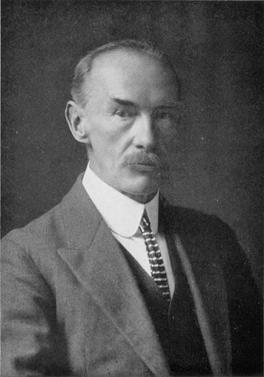Reginald Innes Pocock facts for kids
Quick facts for kids
Reginald Innes Pocock
|
|
|---|---|
 |
|
| Born | 4 March 1863 |
| Died | 9 August 1947 (aged 84) |
| Nationality | British |
| Scientific career | |
| Fields | Zoology |
| Institutions | Natural History Museum, London, London Zoo |
Reginald Innes Pocock was a famous British zoologist. A zoologist is a scientist who studies animals. He was born on March 4, 1863, and passed away on August 9, 1947.
Contents
Early Life and Education
Reginald Pocock was born in Clifton, Bristol. He was the fourth son of Reverend Nicholas Pocock. From a young age, he showed a great interest in nature.
He went to St Edward's School, Oxford. There, he learned about zoology from Sir Edward Poulton. He also got to study animal anatomy at the Oxford University Museum of Natural History. Later, he studied biology and geology at University College, Bristol.
Work at the Natural History Museum
In 1885, Pocock became an assistant at the Natural History Museum, London. He first worked with insects for about a year. After that, he was put in charge of collections of Arachnids and Myriapoda.
- Arachnids include spiders, scorpions, and mites.
- Myriapods include millipedes and centipedes.
He also helped organize the museum's collection of British birds. This work made him very interested in birds. During his 18 years at the museum, he published many scientific papers. He became a leading expert on arachnids and myriapods. He described hundreds of new species of millipedes. He also described a new group of scorpions called Brachistosternus.
In 1929, he suggested a new animal family called Nandiniidae. This family has only one member, a mammal called Nandinia. He believed it was different from other similar animals because of its ear structure.
London Zoo and Later Work
In 1904, Pocock left the museum to become the superintendent of the London Zoo. He managed the zoo until he retired in 1923.
After retiring, he continued his research. He worked as a volunteer at the British Museum. He studied mammals in their department.
Notable Discoveries
Reginald Pocock also studied unusual animals. In 1912, he wrote about the leopon. A leopon is a rare hybrid animal, a mix between a leopard and a lion. He studied a leopon skin sent to him by W. S. Millard. Millard was the secretary of the Bombay Natural History Society.
Family Connections
Reginald Pocock had a brother named Edward Innes Pocock. Edward played international rugby for Scotland. He was also part of Cecil Rhodes's Pioneer Column in Africa. Reginald's great-grandfather was Captain Nicholas Pocock, a famous marine artist.
Selected works
See also
 In Spanish: Reginald Innes Pocock para niños
In Spanish: Reginald Innes Pocock para niños
 | Toni Morrison |
 | Barack Obama |
 | Martin Luther King Jr. |
 | Ralph Bunche |

